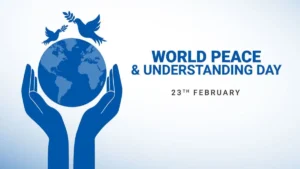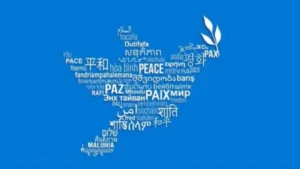Introduction to World Interfaith Harmony Week
Every year, from February 1st to 7th, the world commemorates World Interfaith Harmony Week (WIHW), a time dedicated to fostering mutual understanding, peace, and harmony among people of different faiths. Instituted by the United Nations General Assembly in 2010, this week-long observance highlights the crucial role of interfaith dialogue in building a culture of peace and nonviolence.
The Origin and History of WIHW
The concept of World Interfaith Harmony Week was first proposed by King Abdullah II of Jordan at the United Nations in 2010. Recognizing the urgent need for fostering better relationships between diverse religious groups, the proposal was swiftly adopted by the UN General Assembly through resolution A/RES/65/5. This initiative calls upon governments, institutions, and civil society to promote the objectives of WIHW through various programs and initiatives aimed at enhancing mutual understanding and cooperation.
Significance of World Interfaith Harmony Week
WIHW serves as a powerful reminder of the value of dialogue and understanding across different religious and faith traditions. In a world often divided by religious misunderstandings and conflicts, this observance provides a platform for people to come together, celebrate their differences, and work towards a shared goal of peace. It underscores the idea that despite our diverse beliefs and practices, there is more that unites us than divides us.
Observing World Interfaith Harmony Week
During the first week of February, various events and activities are organized worldwide to promote interfaith harmony. These include:
Interfaith Dialogues and Discussions: Panel discussions, seminars, and workshops that bring together leaders and followers of different religions to share their beliefs and values.
Cultural Exchanges: Events showcasing the diverse cultural practices of different faiths, including music, art, and food, to foster appreciation and understanding.
Community Service Projects: Joint initiatives by people of different faiths to serve their communities, emphasizing the common values of compassion and service.
The Role of Individuals and Communities
While World Interfaith Harmony Week is a global observance, its success depends on the participation of individuals and local communities. Everyone can contribute to fostering interfaith harmony by:
- Engaging in respectful conversations about faith with people from different religious backgrounds.
- Participating in interfaith events and activities in their local area.
- Promoting messages of peace and unity on social media and within their networks.
- Practicing kindness and openness, recognizing the humanity in everyone regardless of their faith.




 Central Excise Day 2026: Why 24 February...
Central Excise Day 2026: Why 24 February...
 World Peace and Understanding Day 2026: ...
World Peace and Understanding Day 2026: ...
 International Mother Language Day 2026: ...
International Mother Language Day 2026: ...








